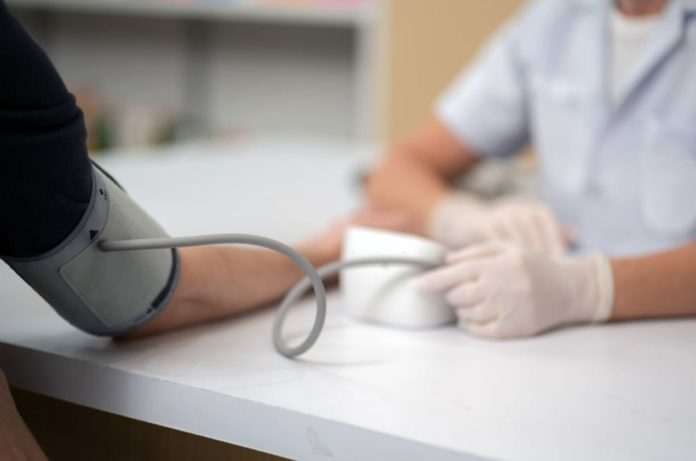How is oral health-related to blood pressure? Is it possible for bacteria in the oral cavity to raise our blood pressure? See what scientists answer
Some oral bacteria have been linked to the development oThe development of hypertension, popularly known as high blood pressure, in postmenopausal women was found to be associated with oral bacteria, according to new research published in the Journal of the American Heart Association.
High blood pressure is commonly defined by two measurements: a systolic blood pressure of 130 mm Hg or higher (the upper number showing pressure while the heart beats) and a diastolic blood pressure of 80 mm Hg or higher (the lower number indicating pressure between heart beats).
While earlier research has shown that persons with periodontal disease had higher blood pressure than those who do not, the researchers think this is the first prospective study to look at the link between mouth bacteria and the development of hypertension.
“Since periodontal disease and hypertension are especially prevalent in older adults, if a relationship between the oral bacteria and hypertension risk could be established, there may be an opportunity to enhance hypertension prevention through increased, targeted oral care,” said the study author Michael J. LaMonte.
The Buffalo Osteoporosis and Periodontal Disease Study in Buffalo, New York, included 1,215 postmenopausal women (average age 63 years old at study enrolment, between 1997 and 2001). Researchers took blood pressure readings and oral plaque samples from below the gum line, “where some bacteria keep the gum and tooth structures healthy and others cause gum and periodontal disease,” according to LaMonte. They also took note of medication use, medical histories, and lifestyle choices to see if there was a link between oral bacteria and hypertension in older women.
During the study, approximately 35% of study participants had normal blood pressure with measurements below 120/80
At the time of study enrolment, approximately 35% (429) of study participants had normal blood pressure: readings less than 120/80 mm Hg, with no use of blood pressure medication. Nearly a quarter of the individuals (306) had high blood pressure, with readings above 120/80 mm Hg and no treatment. About 40% of the individuals (480) were classified as having prevalent treated hypertension, which means they were diagnosed and treated for hypertension with medication.
The researchers detected 245 distinct bacteria strains in the plaque samples. During the 10-year follow-up period, about one-third of the women who did not have hypertension or were not being treated for hypertension at the start of the trial were diagnosed with high blood pressure.
The analysis found that ten bacteria were associated with a 10% to 16% higher risk of developing hypertension, while five other bacterial species were associated with a 9% to 18% lower risk of hypertension.
The findings are particularly important for postmenopausal women as the prevalence of hypertension is higher in older women than in older men, according to Professor LaMonte.
“This paper is a provocative reminder of the need to expand our understanding of additional health factors that may even be influenced by our environments and potentially impact our biology at the endothelial level,” said Willie Lawrence, chair of the American Heart Association’s National Hypertension Control Initiative’s (NHCI) Oversight Committee.
Due to the observational nature of the study, cause and effect cannot be determined, limiting the researchers’ ability to conclusively identify which bacteria are associated with a decreased risk of hypertension and which bacteria are associated with an increased risk. According to LaMonte, a randomized trial would give the evidence needed to determine which bacteria were responsible for developing – or not acquiring – hypertension over time.
Source: 10.1161/JAHA.121.021930
Image Credit: Getty
You were reading: Hypertension: A bacteria that raises blood pressure
